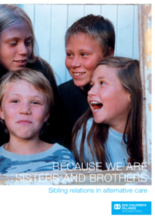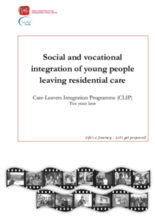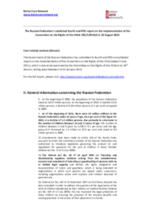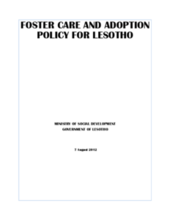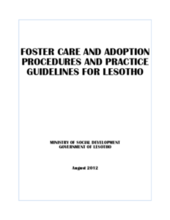Displaying 1991 - 2000 of 2221
This publication by SOS Children’s Villages International brings together research findings, learning and policy recommendations about sibling relations in alternative care gathered from five different SOS Children’s Villages associations (Germany, Austria, France, Italy, and Spain).
This document from the National Statistical Service of the Republic of Armenia provides an overview and assessment of the alternative care system in the country.
This paper evaluates a program started by International Social Service for social and professional realisation of young people leaving care (Care Leavers Integration Programme, CLIP), ten years after the program began.
The chapters in this book discuss the complexity immediately encountered when approaching the task of improving the lives of Looked After Children (LAC).
Care related sections of the Government of the Russian Federation's fourth and fifth combined report on the implementation of the Convention on the Rights of the Child (dated 3rd June 2011).
This article focuses on a central problem of foster care, which is that it is often not developmentally informed.
A document containing the policy for foster care and adoption in Lesotho.
This document contains the Procedures and Practice Guidelines for Foster Care and Adoption in Lesotho.
This paper describes a study that assessed the attitudes of people in the Hashemite Kingdom of Jordan toward the implementation of foster care as an alternative to institutions for children.
The study is designed to identify whether effective caregiving mirrors strong parenting among typical parents or whether a set of additional skills is required to parent foster children responsively. Some of the principle features of quality caregiving for children are described particularly in the domains of family integration, relationships with biological parents, and support for children's special needs.

